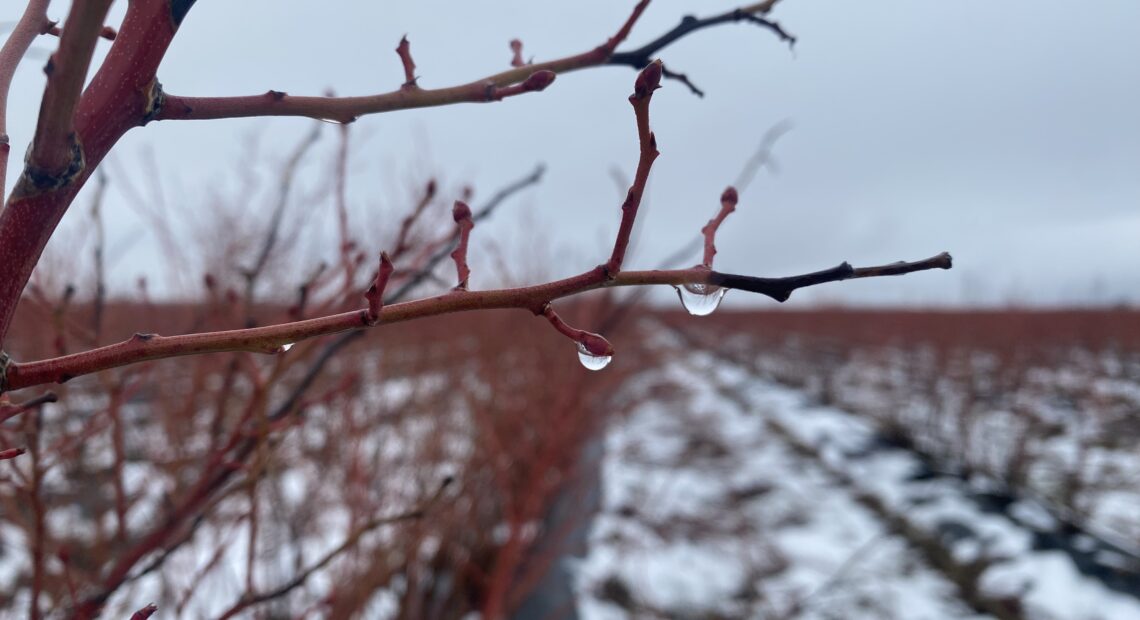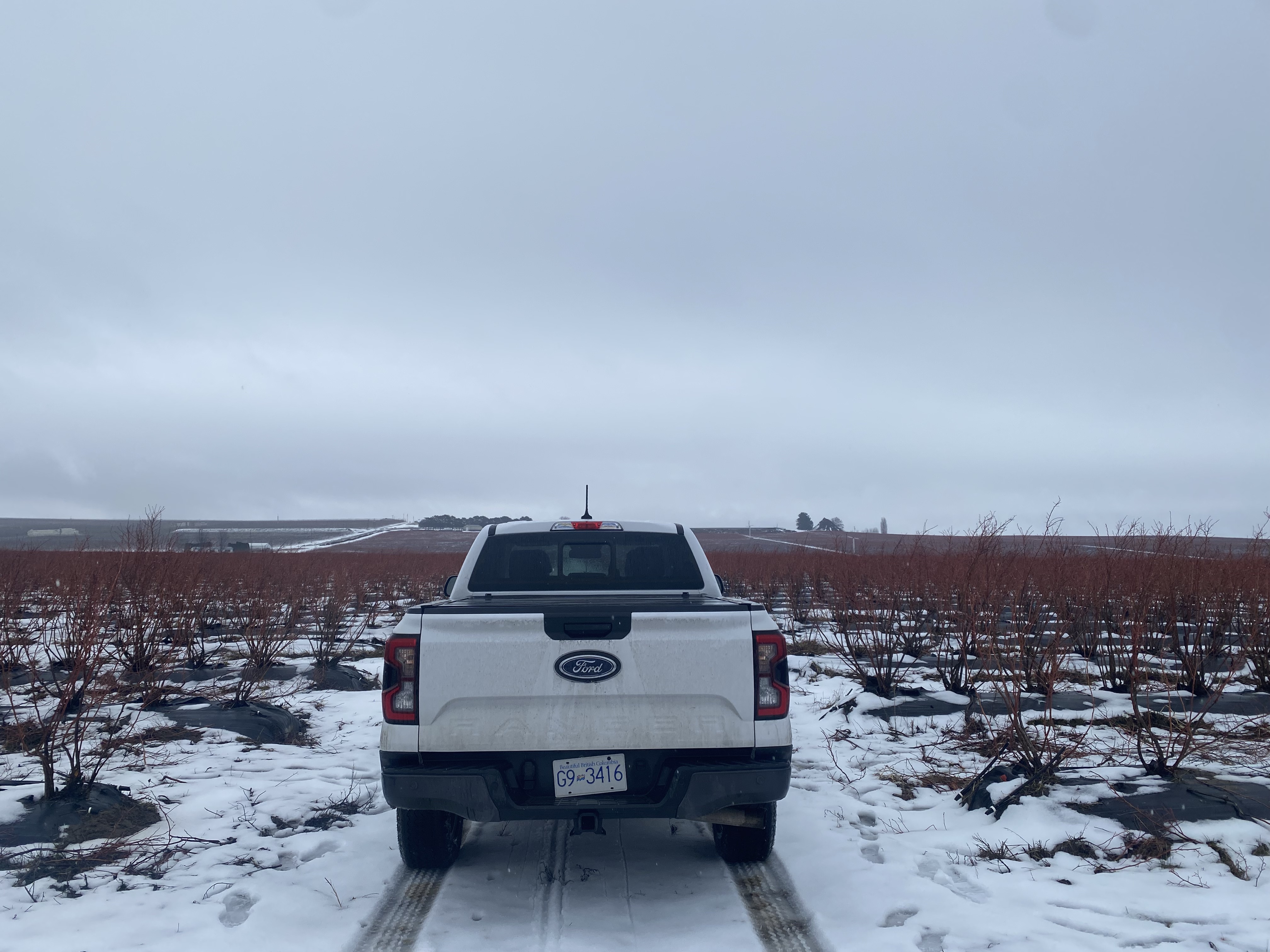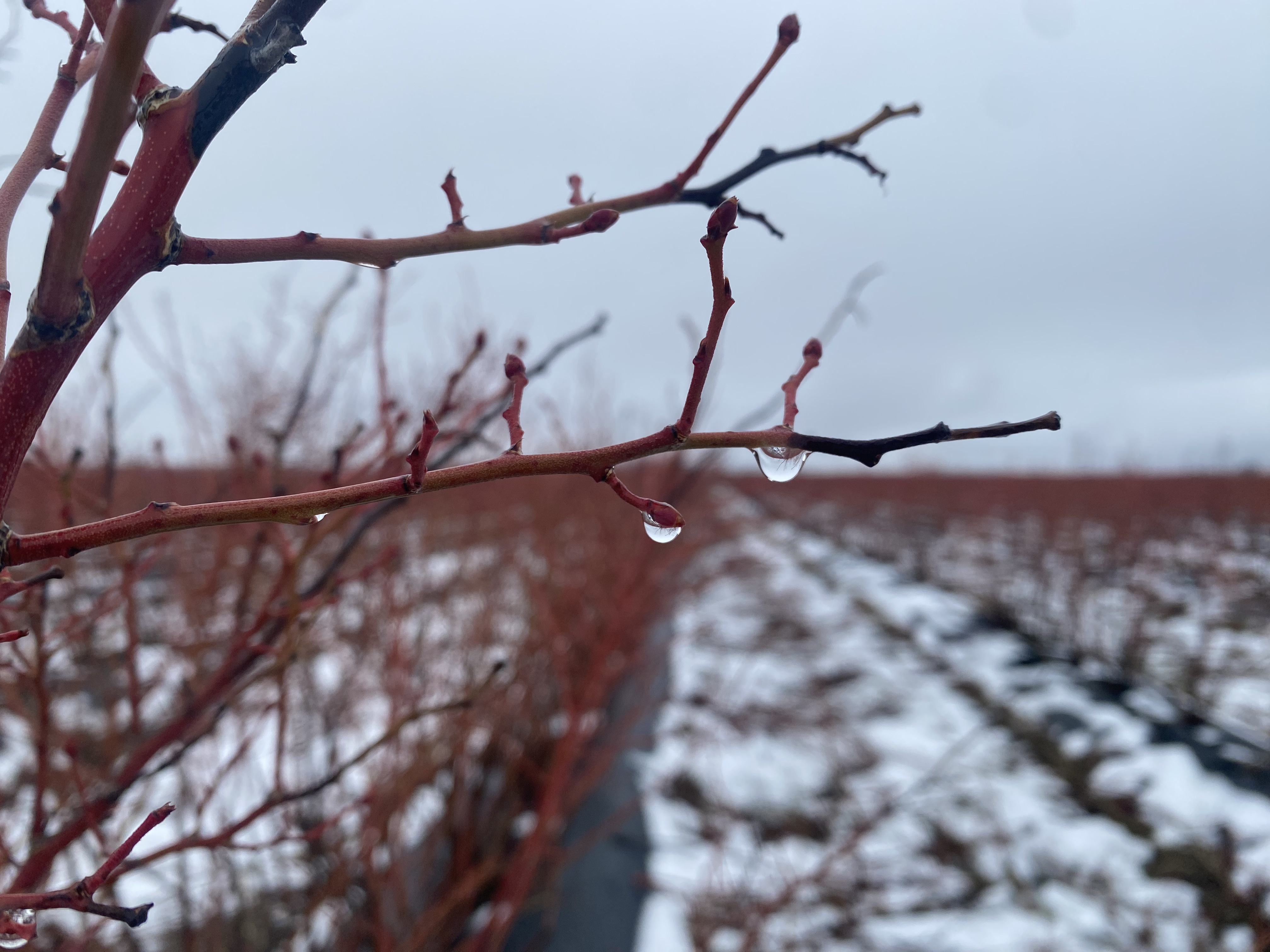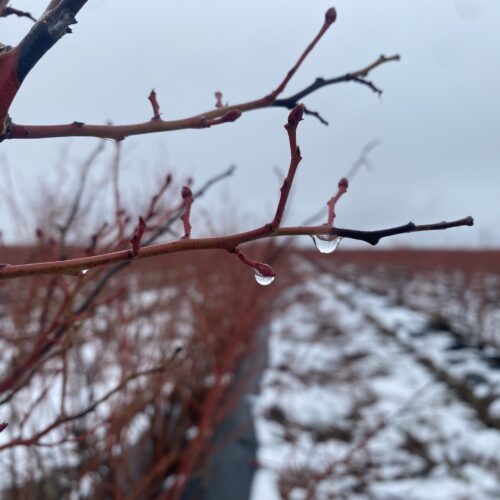
Blueberry bust: Hundreds-of-millions-of-dollars blueberry biz in the Northwest and Canada act as one, tariffs could complicate the relationship
Listen
(Runtime 2:47)
Read
At one of the largest blueberry farms in the U.S., there are rows and rows of bushes to the horizon.
“This variety here is Draper,” said Ray Biln, whose family owns this sprawling farm in Franklin County, Washington state.
Biln’s 1,500-acre farm here produces tons of blueberries every year from several varieties. Its output is part of what helps make Washington state the leader in blueberry production for the U.S. A lot of that fruit does a loop through Canada for packing, processing and cold storage – all before hitting your American cereal bowl. And now, the Trump Administration’s tariffs – although they don’t apply to U.S. and Canadian blueberries right now – have growers worried they could eventually be squeezed – from both sides of the border.
There are around 800 workers to harvest just this one Biln-owned farm.
“Our decisions do impact other people,” he said.
Decisions like how to navigate tariffs. Right now, Biln is considering whether to add more wind machines and a modular cooling system on site, but with the uncertainty, he doesn’t want to overextend on cash flow or debt. Right now, Biln knows the tariffs could make blueberries more expensive to grow, harvest, process and ship – and for people to buy – but he doesn’t yet know exactly how that will affect his family’s business. There’s also the question about what countries he could ship his fruit to for sale, with retaliatory tariffs at play.
“That’s why it’s important to stay even keeled and try to make the best decisions in the landscape we’re given,” Biln said.

Ray Biln owns and operates a massive farm that harvests blueberries and then trucks many of them to Canada for processing and fresh packing. He stands near a stack of large blueberry transport lugs. (Credit: Anna King / NWPB)
Biln’s family has other large farms in the U.S. but also in Canada.
He said the blueberry industry is totally interdependent across the border. Most of his Washington fruit is processed and packaged in plastic clamshells up north in British Columbia. And then the berries come back – stickered as U.S. fruit.
On Feb. 1, the Trump administration put nearly universal 25 % tariffs on any product coming out of Canada and Mexico. The only things that weren’t as high were oil and energy out of Canada, which have a 10 % tariff. In response, Canada put 25 % tariffs on many American goods coming into the country. On Feb. 3, just a day before tariffs were supposed to be imposed, both countries put a one-month pause on them.
As of today, there are no tariffs on blueberries going to Canada, or Canadian blueberries coming back to the U.S. – they are part of the United States Mexico Canada Trade Agreement [USMCA], making them exempt from tariffs.
But for Biln, just the idea of his produce being tarriffed twice – once going into Canada, and again on the return – is putting his big plans in a blender.
“You know we have projects on pause now on both sides of the border,” Biln said.
Right now, Biln says, they don’t have a large building-sized cooler on his Franklin Country farm. He wants to install one to help preserve the fruit quality better, but that’s a big capital expenditure, and the uncertainty makes that project need to hold for now, Biln said.

Ray Biln’s farm truck idles in a sea of blueberry bushes to the horizon on his family’s farm in Franklin County in Washington state. (Credit: Anna King / NWPB)
About 40 million pounds of Washington’s blueberries are shipped to Canada for packing or processing each year. When the berries are ripening at the height of summer, it’s go-time to get them sold fresh or frozen right away. If tariffs are imposed on Canadian blueberries and in return, U.S. berries, that could mean blueberry distributors might halt fruit shipments across the border – because the product would be too expensive for people to buy. That could lead to rotting berry islands in places like Whatcom County, Washington, where farmers may not be able to get their fruit to processing or cold storage.
“We’re gonna have a very large oversupply,” said Paul Sangha, who grows berries in the very north of Washington state and distributes mass amounts of fruit around the country.
Sangha’s imagining August with loads and loads of berries in his 10-acre-shipping yard – with no place to go.
“How do we in such a short window handle that?” Sangha asked.
Alyssa Houtby is a director with the North American Blueberry Council. She’s hoping at least for some sort of silver-tariff-lining for U.S. blueberry producers.
“We want to see the tariffs in Vietnam addressed, in Japan addressed, Malaysia, Taiwan,” Houtby said.
Those are countries that import a lot of frozen, fresh and dried blueberries from the U.S. So if the Trump Administration strikes the right deal, she says, maybe at least some in the domestic blueberry industry will win out.
Wednesday’s news of a 90-day pause on some tariffs and that some countries are coming to the table to negotiate with the administration, is a positive sign, she says.
“And we hope that any agreement forthcoming addresses the tariff, and non-tariff barriers that impede blueberry exports. Japan is at the table, Vietnam is at the table – those are priority markets for the blueberry industry.”
Houtby added, in her many years in the industry, she’d never seen anything like this.
“Usually trade agreements take a very long time – it’s a shock to the system,” she said. “This is not typically how trade agreements are negotiated.”
















